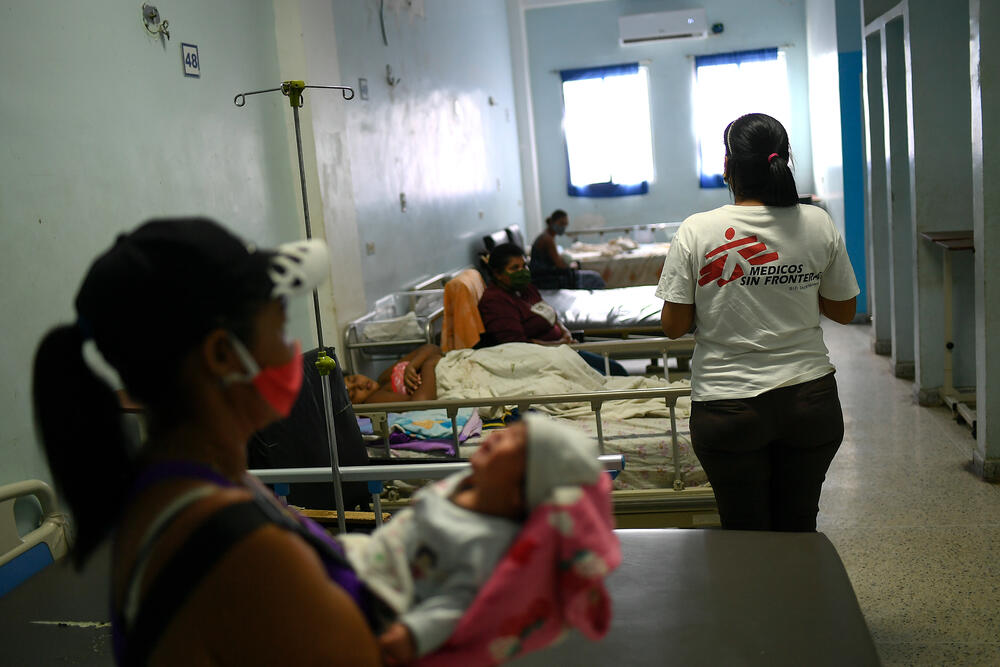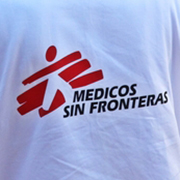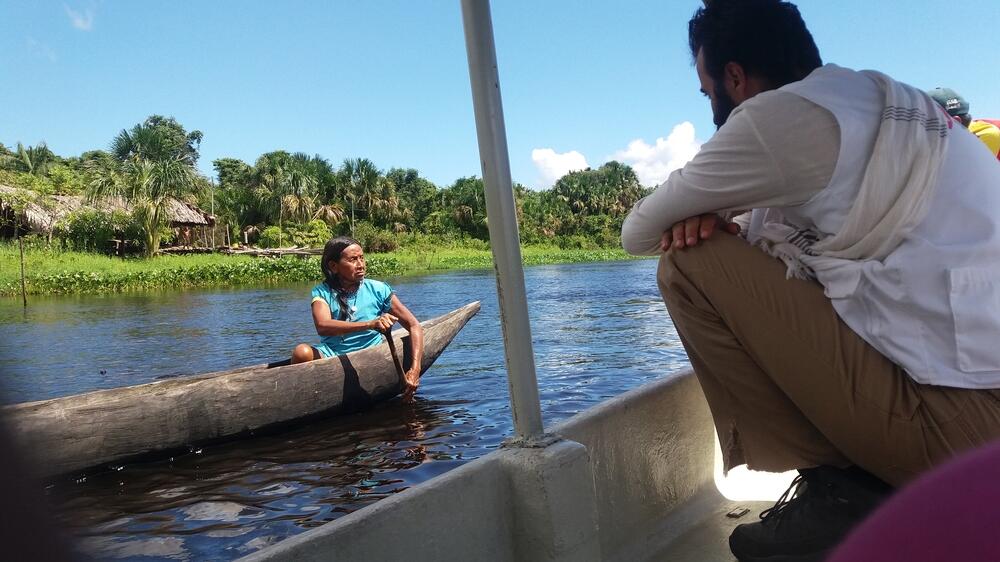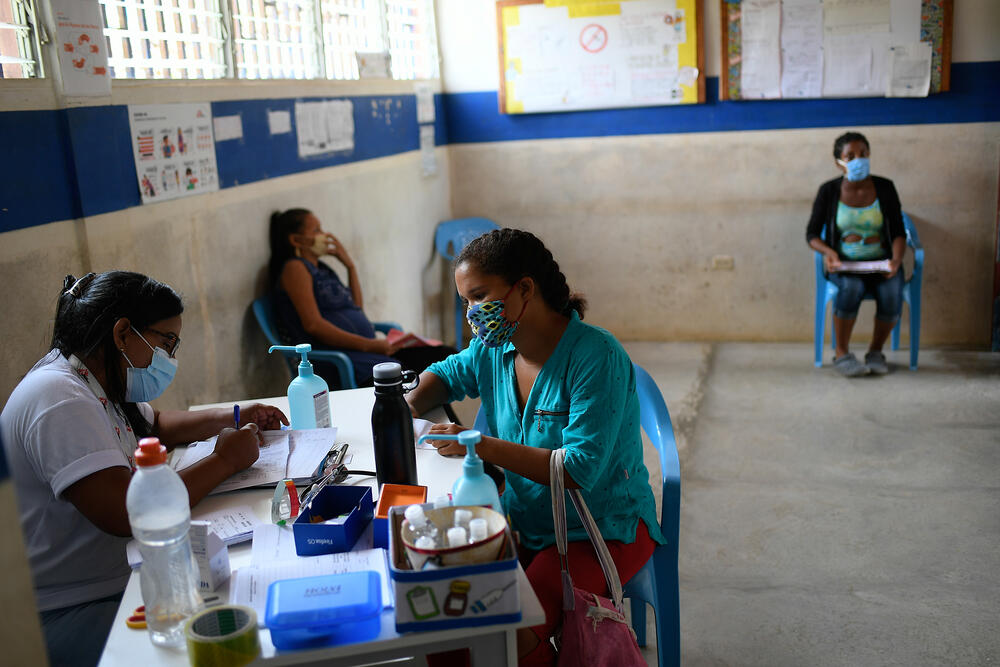Venezuela: “She was in labour, but something else was wrong”
Maritza is a doctor from Venezuela, where she works to improve access to healthcare for women and their children, “closing the gap” for remote communities.
She was 38 weeks pregnant, maybe 39. Very close to delivery. She arrived at the health care centre where I was working, in a remote area of Sucre State, Venezuela.
I was there as part of my role with Médecins Sans Frontières / Doctors Without Borders (MSF), supporting local authorities and healthcare staff.
The woman had abdominal pain, and, as a doctor, my immediate thought was that she was in the early stages of labour.
But it wasn’t just that.
“My mind flashed back to another young woman with malaria, who I had treated many years before”
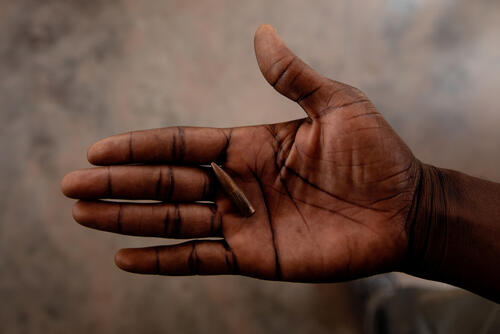
As the nurse and I examined her, we found that this lady was running a high fever. She was extremely dehydrated. She was certainly in labour, but something else was wrong.
Malaria is endemic in many areas of Venezuela, including this one. We ran a rapid test. Positive.
Never miss an update
Get the latest news on maternal health with our email newsletter, Frontline.
You'll also receive our best stories, critical updates and unique ways to get involved.
In pregnant women, malaria is considered an obstetric emergency because it can cause complications for the newborn. To reduce the risks, the woman should have already been on malaria treatment, but this was the first time she had come to the health centre.
And this baby was coming, soon.
As we rushed to make arrangements, my mind flashed back to another young woman with malaria, who I had treated many years before.
Another fever
In Venezuela, when you graduate from medical school, your first job is always a year in a rural area, where there often is not much access to healthcare.
Mine was in a really remote indigenous community in the south of the country. I was the only doctor there, fresh from medical school when there was a malaria outbreak.
I am from Caracas, Venezuela’s capital, so I hadn’t had a lot of experience with tropical diseases at that time.
A young woman came into the clinic. She had a bad fever. She had been scared to come into the clinic because her father had recently died with similar symptoms.
This young woman had complicated malaria, a dangerous condition. She needed intensive care, but, in that remote place, I did not have the resources to treat her or even to transfer her to a hospital with the right facilities.
After a long and difficult night, trying to stabilise her with what we had to hand, I finally managed to arrange a transfer for her to a hospital.
It was 3:00 AM. Very sadly, she died on the way.

Help us prepare for the next emergency
Closing the gap
That moment changed my life. Up to that point, I had had my career planned out. I was going to do my rural placement, and then start additional training to become a surgeon.
However, I knew that if this woman had had better access to care, she might have lived. I could not stop thinking about it. Therefore, I made a new plan. I wanted to work at closing the gap for communities like hers.
“In many ways, these are small things… but it really showed me the huge impact that small things can have”
After I finished my rural placement, I kept working with indigenous communities. Eventually, I took a job with MSF.
That is what had brought me to this moment in Sucre, to another small health centre and another young woman with malaria.
But this time things were different.
By now, I have had years of experience managing tropical diseases. MSF has donated an ambulance so that referrals could be made safely when needed.
Quickly we coordinated with the MSF-supported hospital in the capital city of the state, Carúpano.
Thanks to the referral pathway MSF has set up, the woman went in the ambulance and reached the hospital in time.
There were complications with the baby when it was born and it spent time in the intensive care unit, but, in the end, we had a healthy mum and a healthy baby.
Small changes
The MSF project I was part of in Sucre focused on reproductive and sexual health, with the aim of reducing the rates of maternal and neonatal deaths.
Previously MSF teams in the state had focussed specifically on malaria, and we were still donating malaria treatments to the Venezuelan health service in the area.
If we hadn’t been there for this woman, or if the ambulance hadn’t been there, or if the hospital had not had the resources, the baby probably would have died before reaching the hospital and the mother would have had life-threatening complications.
In many ways, these are small things – a course of malaria medication, an improved process for transfers – but it really showed me the huge impact that small things can have.
MSF and maternal health
Many women across the world give birth without medical assistance.
This massively increases the risk of complications or death. Ninety-nine percent of these deaths are in low-income countries. The majority are preventable with appropriate care.
Our healthcare teams work together with pregnant women to provide delivery services, emergency obstetric care and post-delivery consultations.
